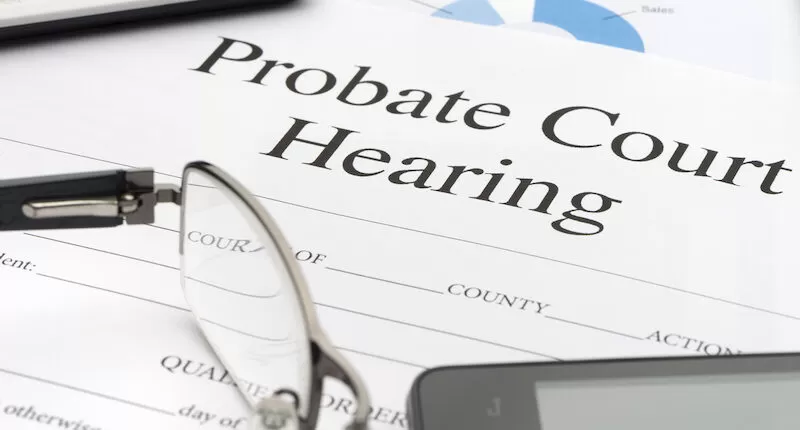How to Avoid Probate in California
Navigating probate after the death of a loved one can be extremely difficult for grieving families. Here are tips on how to avoid probate.
Read on for more.
Introduction
Probate is the dreaded word that no family wants to hear when their loved one dies. But without taking the proper steps to avoid it, this lengthy and costly process becomes necessary – and can even expose your financial affairs and prevent your family from accessing the funds and assets you leave behind.
The good news is that you can avoid it. And here’s how to do that.
What is Probate?
Probate is a formal legal process in which an estate gets settled after someone dies – under the supervision of the court system. The deceased’s outstanding debts will be paid using funds from the estate. Then the remainder will be transferred to the beneficiaries.
Unless otherwise stated in a will, the remaining assets get distributed to beneficiaries based on California law.
4 Reasons to Avoid Probate
So assets get distributed to beneficiaries – what is the big deal? Why would someone want to avoid probate? Most people associate a negative experience with the word probate and automatically want to avoid it. But let’s look at how that negative connotation came to be.
- Expensive: The probate process involves the court system and often hiring an estate planning attorney. Depending on the estate, these fees can be pretty high. These will lead to added expenses that are unnecessary.
- Time Consuming: A lot is involved in handling a probate case – and time lapses must occur. Many forms and documents require the court’s supervision, and so on. If the intention is to sell the property, it may not be able to be sold during this time. And if so, you may not be able to access the sale proceeds until the probate concludes.
- Private Matters Become Public: Nobody wants all of their financial information shared in public records. Unfortunately, in probate, this information is no longer secret – and neither are the names of the beneficiaries.
- Lack of Control: Leaving your estate in the hands of probate when you die means that a judge will have the last word in deciding how officials will distribute your assets. This is someone you have likely never met and doesn’t know a thing about your family. As a result, the judge may distribute assets in a way you would have never wanted – and no one controls that.
Ways to Avoid Probate
Now that you know why someone may want to avoid probate let’s talk about the many ways you can do that.
Living Trusts
A living trust is an option to avoid probate. It is also called an inter vivos trust. You create one while alive and can change it whenever you like. You can add assets, remove them, change beneficiaries, etc.
Many individuals use living trusts to house things like real estate, vehicles, investment accounts, bank accounts, retirement accounts, jewelry, artwork, and the like. These things get moved out of your name and into the trust’s name. That way, when you die, you aren’t the legal owner of any of it – so there is nothing to go through probate.
Everything will move to those you have designated under the trust’s terms. This is one of the most beneficial and foolproof ways of avoiding probate.
Joint Ownership
How you title your property affects how the probate court will handle it after you die. You can easily keep your property out of probate by titling real estate as joint tenants with a right of survivorship.
When you title your property this way, each person would own an equal share of the property while you are alive. Upon your death, a probate court would automatically transfer your share of the property to the other/s.
Remember that this is just for your property and is not foolproof. Should the individual you share the title with dying before you do, it will still end up in probate court. Plus, there could be other issues regarding creditors and taxes. It is best to speak to a lawyer to discuss all the details of going this route to ensure you have protected yourself in the way you want.
Payable-On-Death Designations.
A payable-on-death account makes it possible to keep some assets free from probate. You would let your bank or other financial institution know where those funds are to go. And beneficiaries can claim these funds immediately after the account holder’s death.
There is no cost to set up these designations nor limit how much can be inherited. A downfall is that there is no way to name an alternate beneficiary. Therefore, if someone passes and the beneficiary, those funds will end up as part of the estate in the probate process.
Transfer-On-Death Deed.
Finally, the last common way to avoid probate is to create a transfer-on-death deed. This gives you the ability to leave property to someone else without having to create a trust. It doesn’t go through probate and is relatively easy and cost-effective. Of course, as long as it meets the requirements –
- Single-family home (with or without less than 40 acres of agricultural land)
- Condominium
- A residence with four or fewer units
You can alter these deeds at any time, and you must sign, notarize, and record them to be valid.
Consult an Estate Planning Attorney
When protecting those you leave behind after you die, it is best to consult an estate planning attorney. Their experience will help you determine your best course of action for avoiding probate – and ensuring your family is taken care of in the way you desire. Not to mention that planning mistakes could be costly.
Probate does have its advantages in certain situations, but most find that a living trust is a way to go. Discuss these things and more with your estate planning attorney and discover what may work best for you and your assets.
Are you in search for a certified attorney to represent you?
Let us help you find one today!


